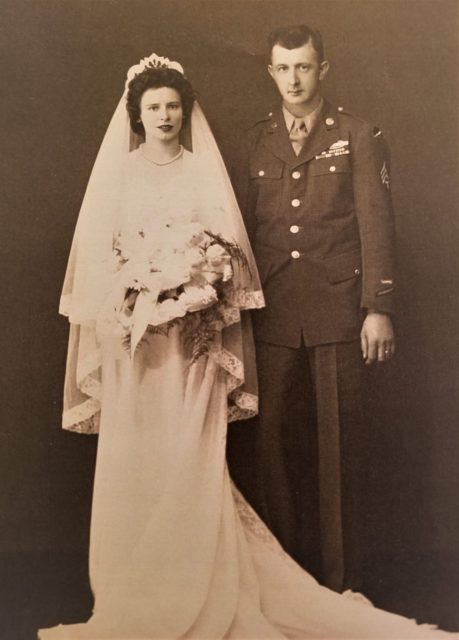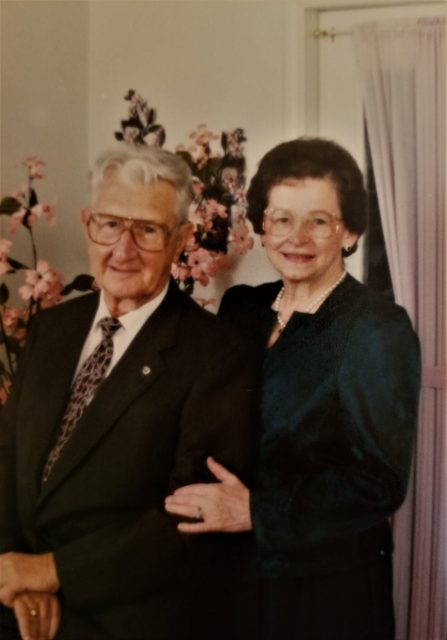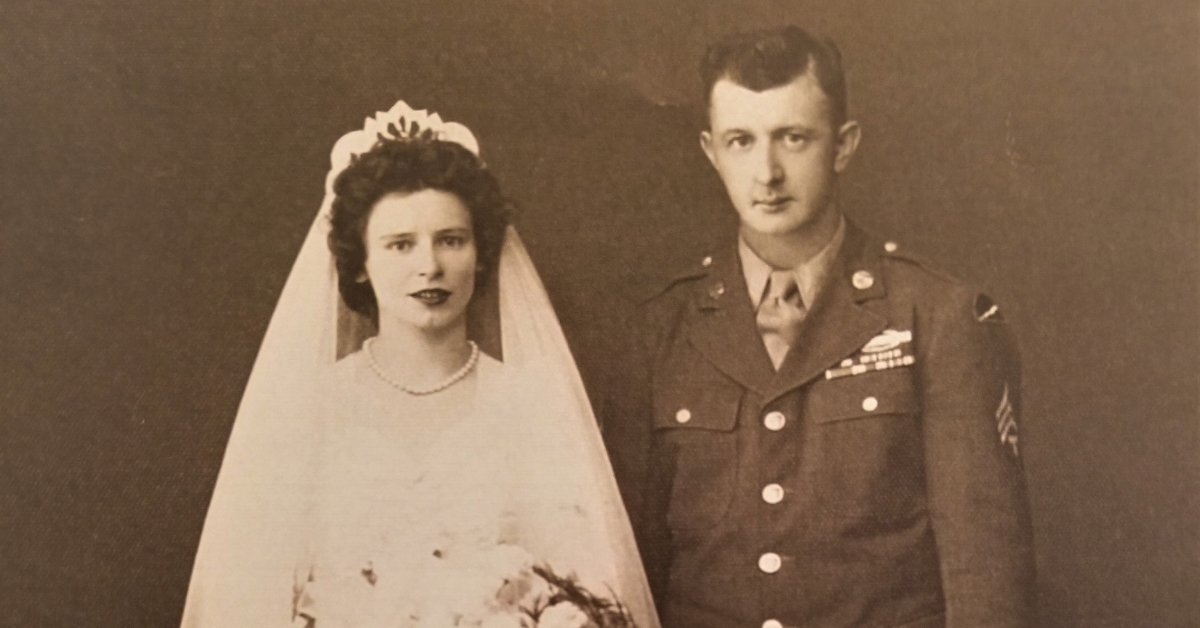Editor’s note: This article is the final in a two-part series regarding the military experiences of U.S. Army Veteran Sergeant Leonard P.
Sergeant Leonard P. Jaegers, after being shot in the skull on April 6, 1945, during combat in World War II, was presumed dead and his body moved to an area and laid among several other soldiers killed in action.
Fortunately, a chaplain discovered the wounded Jaegers was still alive and the immediate medical attention he received is credited with saving his life.
“Years later, he told a family friend that while he was on the battlefield in Germany, he made the promise to God that if He let him live, he would work for Him until he died—and he kept that promise,” said Jaegers’ daughter-in-law, Helen.
This period was also very tumultuous for another Helen in Jaegers’ life, Helen Wankum, to whom he was engaged prior to the war.
When word was received that the family could come visit the injured Jaegers at Bushnell General Hospital in Brigham, Utah, his mother, fiancée and family friend, Bud Loethen, left their homes in Meta and took a train headed west.
The injury left Jaegers with severe memory loss, paralysis on his right side and significant speech limitations. Upon their arrival at the hospital, the recovering soldier did not recognize his visitors, but after a couple more visits, he recalled who they were and was pleased to see them.

Years later, his former fiancée wrote of her time at the hospital, “During one of (our) visits, I told him that we were engaged and his injury didn’t make any difference to me and that one day we would be married. This information improved his attitude.”
Undergoing several surgeries on his skull and brain, the next several months continued an intense regimen of physical and speech therapy followed by his transfer to a hospital in Framingham, Massachusetts.
As Helen, his fiancée at the time, explained in some of her later writings and recollections, he would at first walk by pushing a wheelchair since he was unable to grip a cane.
Eventually, Jaegers’ abilities improved to the extent he was allowed to return home to Meta, where his fiancée remained true to her commitment.
On December 27, 1945, U.S. Army Veteran Leonard Jaegers and the former Helen Wankum were united in marriage and, as the years passed, became the parents of seven children.
“One thing that impresses me about our father,” said his son, James, “is that although he received a military pension and didn’t have to work, he wanted to get up in the morning, shave, and get dressed to show his kids that fathers were supposed to have something to do.”
In addition to traveling to locations such as St. Louis to undergo physical, speech and occupational therapy, Jaegers was described as a man that was always on the move and eventually found employment at a drug store in Meta. This job afforded him opportunities to rebuild his confidence while recovering from his injuries.
With improvements in his motor skills and speech also came the return of many of his past memories; however, Jaegers would always suffer from headaches and never regained the use of his right arm.
As his children explained, although he enjoyed his work at the drug store, he aspired for something more, which was achieved through the help of the love of his life, Helen.

“Our father always wanted to open a store of his own, so he and mom opened Jaegers Shoes and Apparel in August of 1959,” said Robert Jaegers.
“They frequently traveled to Springfield (Missouri) and loaded their station wagon with wholesale merchandise that they brought back to the store in Meta to sell.” Pausing he said, “They operated that store for 26 years.”
Reflecting on the promise the young soldier had made on the World War II battlefields of Europe, the Jaegers’ family explained that he strived to fulfill the promise of service that he had made to God.
“He and mother were always volunteering in some capacity,” said his son, James. “They volunteered at least one day a week at the VA hospital in Columbia and were very involved in the church and community organizations.” He added, “Years later, when he and mother traveled to Texas for the winter months, they volunteered three days a week at the VA hospital in San Antonio.”
In later years, Jaegers enjoyed attending military reunions and, during one such event held in Pennsylvania, met the individual responsible for having saved his life.
“(We) were surprised to meet the Army Medic who helped treat Leonard as he lay wounded on the German battlefield so many years ago,” wrote Jaegers’ wife in a document maintained by the family. “Not only was he surprised Dad had made it, but the fact that he could walk and talk. He stated that it was a miracle.”
The 89-year-old Jaegers lived a rich life, passing away November 2, 2010. His beloved wife, Helen, passed away less than two years later on July 25, 2012. The couple lie at rest in Hawthorn Memorial Gardens.
The courage and determination of their father has left an indelible impression on his children, but they also realize his success in overcoming great physical challenges was a team effort not achievable without the assistance of their mother.
“Our father always felt blessed with the life that he had been given,” said Robert Jaegers. “He seemed to be on the move all the time and never sat still for very long. “Through great will and determination, he was able to improve.”
Another Article From Us: Part 1: Love & determination – U.S. Army veteran suffers severe brain injury during WWII combat
He concluded, “But it was our mother who was always there for him—it was her devotion and support that truly helped him recover from his war injuries.”
Jeremy P. Ämick writes on behalf of the Silver Star Families of America.
